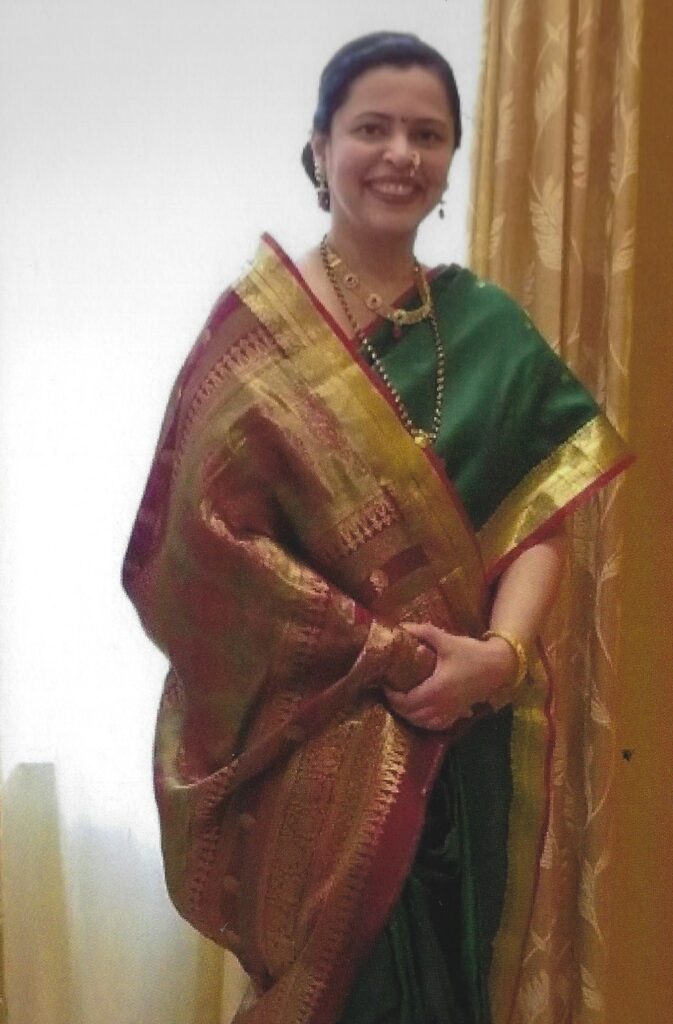
Prathiba Bhat was born in Belgaum, India (the Karnataka state) on December 1, 1972. Her parents met through an arranged marriage and were also well educated. Born in the small village of Honnavar, her father grew up with no electricity, stores, phones, and radios. He often walked barefoot to school and had to draw water out of wells. Despite these circumstances, her father attended college and majored in law. Not only was he a well-read man, but he was a philosopher and educationalist. He worked as an attorney for 40 years and later retired as the principal of a law college where he previously worked as a professor. He later became a judge for the people’s court where he led forums against corruption. Bhat’s mother was born in Belgaum and like her husband was also well educated. She received a Bachelor of Arts and was a devoted activist during college. During her college years, Bhat’s mother attended rallies in favor of Belgaum falling under the jurisdiction of Maharashtra in what is known as the Belgaum Border Dispute, a dispute which continues today. Since her mother was Marathi speaking, she wanted Belgaum to join the Marathi speaking Maharashtra state instead of joining the Kannada speaking Karnataka state. While attending these rallies, Bhat’s mother was tear gassed.
During her childhood, Bhat lived in the suburbs of Belgaum and often visited her mother’s family who lived nearby. Bhat’s family belonged to the Brahmin caste and celebrated many holidays and festivals such as Diwali. Growing up, Bhat had a number of Christian and Muslims friends and celebrated holidays such as Eid and Christmas alongside her friends. Moreover, Belgaum was an educational hub containing many schools and colleges. However, the Belgaum Border Dispute made it dangerous to attend any linguistic majority school. Thus, Bhat’s parents enrolled her in a Catholic school where she studied English, Kannada, and Hindi and was involved in theater. Despite attending a Catholic school, the unrest that resulted from the border dispute lead to several school closures, including Bhat’s Catholic school.
Bhat attended Karnataka University, a university which all areas of the country attended. She majored in computer science and met her husband who was also a classmate of hers. After college, Bhat worked as a computer teacher for Tata Unisys in Pune.
In 1996, a dispute with the Tamil Nadu state over river water resulted in Bhat’s neighborhood to be without running water for 8 days. Friends from the United States visited during this time and, witnessing this situation, convinced her to move to the United States. Initially, her husband arrived in the United States alone and Bhat followed three months after. The couple’s early life in New Jersey was difficult. Moving to a foreign country was not only a cultural shock, but it was also rife with financial difficulties. The couple could not afford much furniture for their apartment and could only afford one car.
Over time, Bhat overcame these challenges. Citigroup employed her husband in New York City and Bhat received a job from ITM Institute in Edison, New Jersey as a computer teacher. In 2004, she began working for AVTECH Institute of Technology. She continues to work for AVTECH where she is involved in teaching the workforce of New Jersey computer skills and more general job skills.
While living in the United States, Bhat remained connected to her Indian roots. Her family continues to celebrate Indian holidays and visit the local Hindu temple. Her oldest daughter has studied traditional Indian dance forms. In addition, Bhat remains connected with a large South Asian community in the New Brunswick area.
Furthermore, she has been involved in charitable work. She has worked for Hidden Gems and also for Children International, where, alongside her father, she provides educational support for young children in India.

